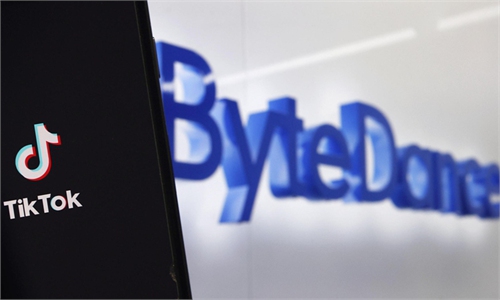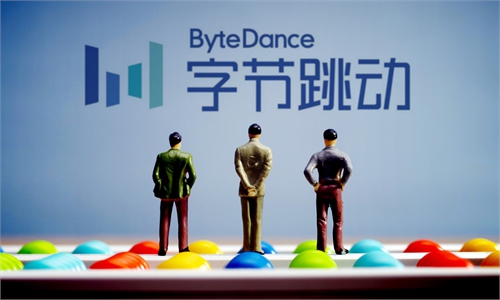
A view of the headquarters of Bytedance in Beijing in December 2018 Photo: IC
ByteDance founder and CEO Zhang Yiming, the low-key Chinese entrepreneur, said Tuesday the company is likely to face up to more difficulties ahead as the company is pursued by the US government in an atmosphere that is unfavorable to Chinese firms overseas, and the true purpose of the US' review of TikTok is to ban it completely.
In an internal letter to Bytedance's Chinese staff, Zhang said that the focus of the current problem is not that the Committee on Foreign Investment in the US (CFIUS) forced the sale of TikTok's US business to a US company on the grounds that Musical.ly acquisitions endangered national security, which is not what the US wanted and hoped for.
"Its real purpose is a complete ban," Zhang said.
Musical.ly, a teen-focused lip-syncing app, was acquired by ByteDance in November 2017 and absorbed into TikTok. The CFIUS' investigation into the purchase is still under way.
Some Chinese netizens have been picking fault with the Chinese start-up, saying it should not "kneel down" in front of the US hegemony and sell TikTok US operations, accusing the founder "not having the guts to fight with the US bully."
"I understand well that (Chinese) people have high expectations for a Chinese company going global. But lack of sufficient and accurate information, plus people's resentment against many actions of the current US government, will easily lead to fierce criticism of us," Zhang said.
"Regarding public opinion, we should be able to accept misunderstandings for a period of time," Zhang told his Chinese staff.
Zhang forecast that there will be more difficulties ahead. "In some countries including the US, a certain atmosphere has been forged by some politicians to conduct a full attack on China and Chinese firms so that even people with comprehensive perspectives and pertinent views cannot speak fair words openly."
Despite coming under siege from the US government, ByteDance ranks as the world's second-largest unicorn company with an estimated valuation of more than $80 billion, up by $8.6 billion, according to the Hurun Global Unicorn Index 2020 released Tuesday.


